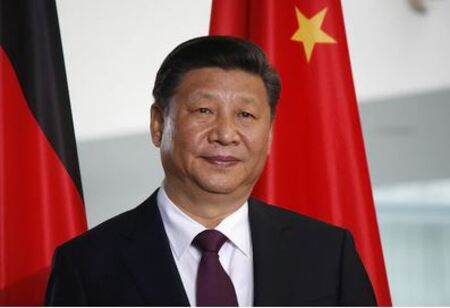
Xi Jinping Calls for Stronger China-Vietnam Industrial Ties


During his three-nation Southeast Asian tour in the Vietnamese capital of Hanoi, Chinese President Xi Jinping urged closer trade and supply chain connections with Vietnam in the face of US tariff disruptions.
The weeks-long visit coincides with Beijing facing US penalties of 145 percent and Vietnam negotiating a 46 percent drop in scheduled US tariffs that would otherwise take effect in July following the end of a global moratorium.
Vietnam is strengthening restrictions on some commerce with China in response to pressure from Washington to ensure that products with the "Made in Vietnam" label have enough domestic added value to support their export to the US.
Xi also emphasized the necessity for China and Vietnam to deepen their cooperation in cutting-edge fields like 5G, AI, and green development, claiming that doing so will benefit the citizens of both countries in measurable ways.
Additionally, Xi invited more Vietnamese exports to China and urged Chinese companies to invest and open offices in the neighboring Southeast Asian country.
Hanoi prioritizes collaboration with China in areas like infrastructure, defense, security, and diplomacy, according to Vietnam Communist Party Chief To Lam, who echoed the call for deeper ties.
The Chinese president's remarks coincide with a rise in tensions over international trade with the United States. Washington briefly reduced tariffs on other Southeast Asian economies while increasing them on Chinese exports under President Donald Trump.
In light of mounting criticism of suspected Chinese transshipment through these countries, the action is perceived as an effort to influence states like Vietnam, Malaysia, and Cambodia to more closely agree with US trade policy. Following the tit-for-tat measures, China is now subject to a 145 percent tariff.
The US imposes reciprocal tariffs of 46 percent on Vietnam, 24 percent on Malaysia, and 49 percent on Cambodia.
Xi continues to urge neighboring countries to unify against what he has called the US' "abuse" of tariffs as he sets out on his first international trip of the year. China has also made a call to India, but New Delhi has not answered.
Also Read: CES 1991: Nintendo's Treason Made Sony Rule With PlayStation's Success
In response to Trump's reciprocal tariffs, China has convened with leaders of the European Union, South Korea, and Japan to propose collaboration.

